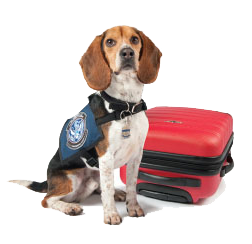International Traveler: Musical Instruments
[ Back ]
The United States restricts or prohibits the entry of many agricultural products, which can carry foreign pests and diseases that harm American agriculture and our environment. A major pest or disease outbreak could mean higher grocery bills, shortages of certain foods, and devastating losses for our farmers and ranchers. Help us keep American agriculture healthy by following the guidance on this page about products you may want to bring into the United States.

Are you traveling from Canada by Land? Find out which meat, poultry and pet food products that you CAN and CANNOT bring back to the U.S. from Canada's land border. Air travelers should refer to the guidance listed below.
Information about Musical Instruments that you CAN and CANNOT bring back to the U.S.
The United States regulates or prohibits the entry of musical instruments that contain materials derived from protected and endangered animal and plant species protected under the U.S. Endangered Species Act (ESA) and the Convention on International Trade in Endangered Species of Wild Fauna and Flora (CITES). Brazilian rosewood, tortoiseshell, and elephant ivory are among the protected species most commonly found in musical instruments.
The U.S. Department of the Interior’s Fish and Wildlife (FWS) enforces these laws, and international travelers who plan to travel to or from the United States with musical instruments or other products containing materials derived from endangered species can learn more about entry and exit requirements by visiting the FWS Website.
If you have further questions or are unsure whether you need to obtain an FWS permit, please contact FWS’ Division of Management Authority, Branch of Permits directly.
Lacey Act
The Lacey Act combats trafficking in “illegal” wildlife, fish, and plants and makes it unlawful to import certain plants and plant products without an import declaration. The USDA is currently not enforcing the Lacey Act Plant and Plant Products Declaration requirement for personal items such as musical instruments that are transported internationally in passenger baggage. Currently, only musical instruments being commercially imported (as a Formal Consumption Entry) require a Lacey Act Declaration.
How Do I Declare Agricultural Items?

USDA-trained dogs help sniff out plants and animal products in luggage and carry-on items on international flights. Make sure you include any agricultural items on your Customs Declaration Form (select form below). This form provides Customs and Border Protection officials with basic information about who you are and what you are bringing into the United States, such as agricultural and wildlife products and whether you have visited a farm prior to traveling to the United States. When you declare, a U.S. Customs and Border Protection official can check your items. This is the only way to be certain that your items are free of plant pests and animal diseases.
Customs and Border Protection (CBP) Forms